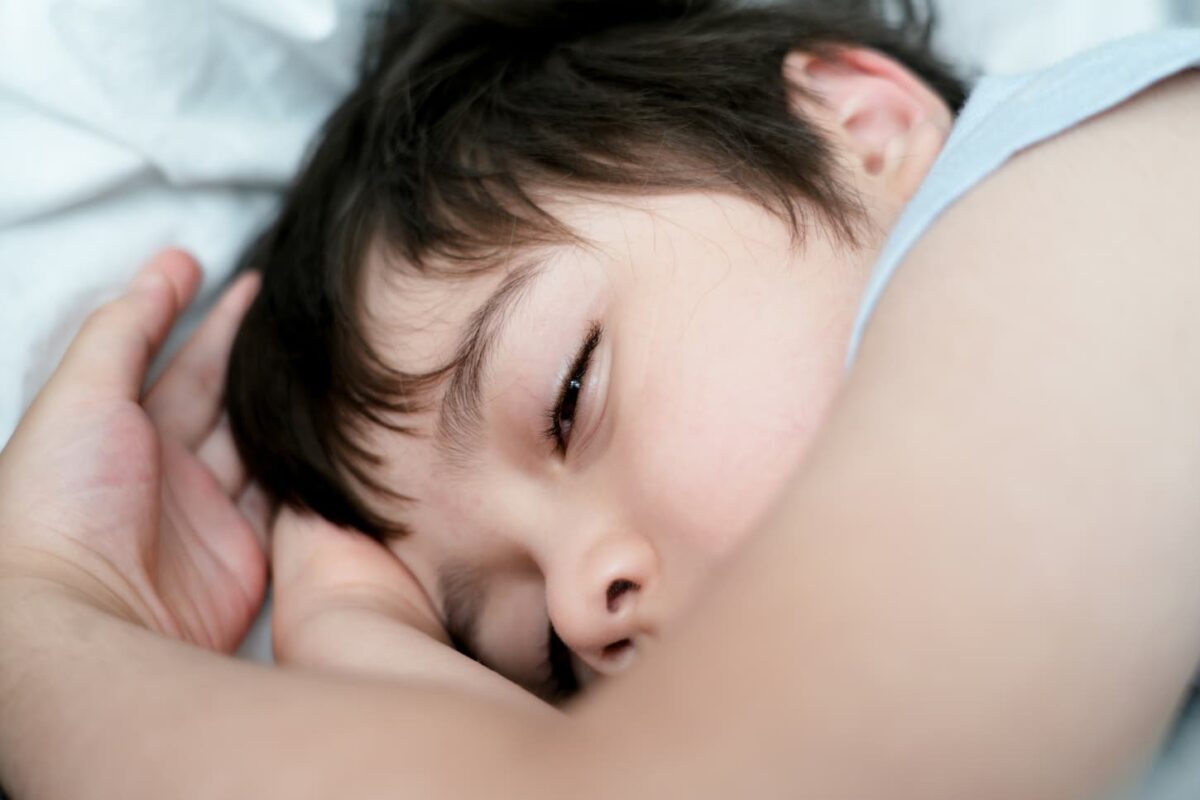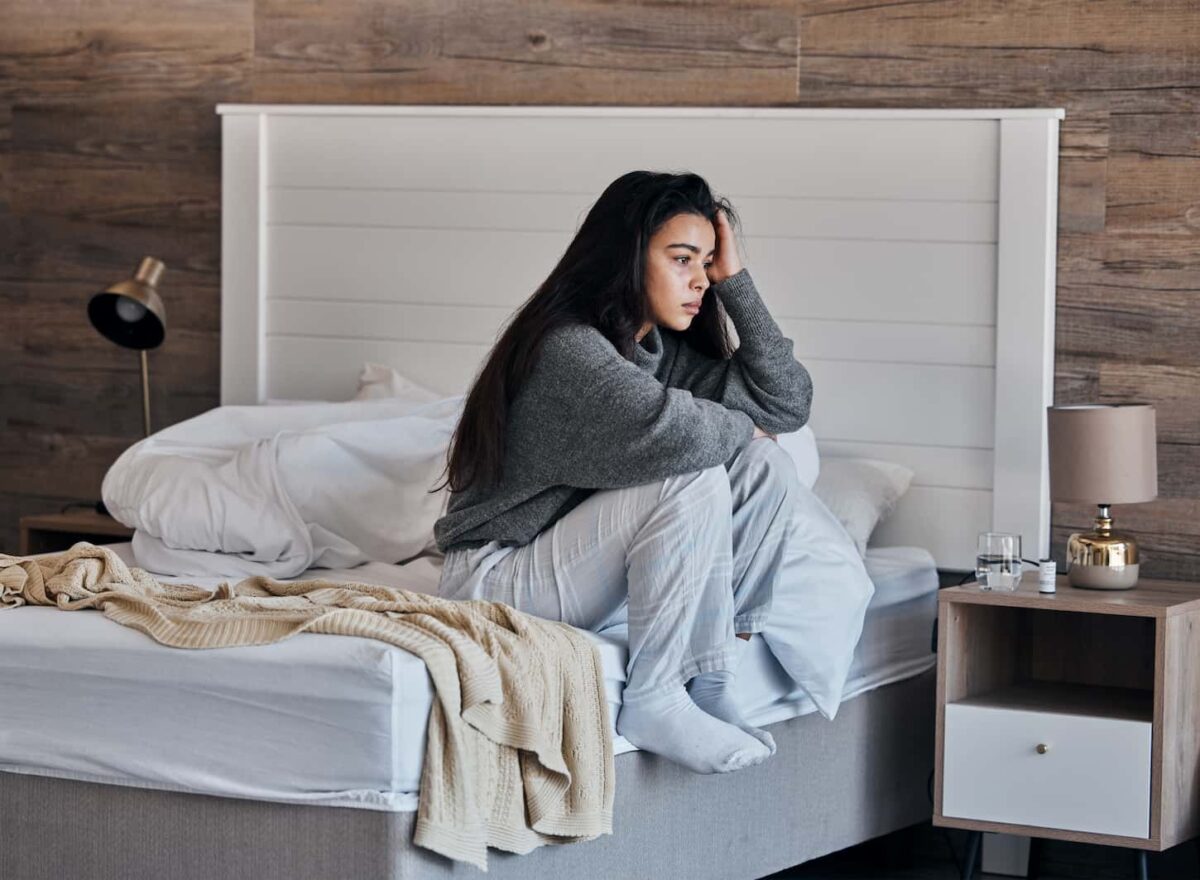Are you having trouble sleeping? Do you find yourself tossing and turning at night, unable to fall asleep? Or do you wake up frequently throughout the night, feeling tired and groggy in the morning? If so, you’re not alone. Many people struggle with sleep issues, and various factors can cause them.
One of the most common factors that affect sleep is age. As you get older, sleep patterns and needs change, and you may face new challenges when getting a good night’s rest. Understanding common sleep challenges by age helps you identify the root cause of sleep issues and overcome them.
In this article, we’ll look closer at the different sleep challenges people face at different ages, from birth to their senior years.

Understanding Sleep Challenges in Infants and Young Children
As a parent or caregiver, it’s important to understand that infants and young children have different sleep needs and challenges than adults. By understanding these challenges, you can help your child develop healthy sleep habits and get the rest they need to grow and thrive.
Sleep Cycles and Patterns
Newborns typically sleep for 8 to 16 hours daily, waking when they need milk or a diaper change. They don’t yet know the difference between day and night, and they sleep for different lengths each day.
As they grow, their sleep patterns become more consolidated at night, with fewer and shorter naps during the day.
It’s important to note that infants and young children have shorter sleep cycles than adults, meaning they wake up more frequently at night.
This is a normal part of their sleep development, and it’s important to allow them to develop their own sleep patterns without too much interference.
Want to read more about sleep cycles and patterns in babies and young kids? We’ve gotcha covered.
- 6 Sample Sleep Schedules for Sleep Training
- Baby Wake Times: a Beginner’s Guide to Wake Windows by Age
Sleep Challenges and Solutions
Some common sleep challenges in infants and young children include difficulty falling asleep, night waking, and sleep disturbances like night terrors and nightmares. If your child is experiencing sleep challenges, there are a few things you can try to help them get the rest they need:
- Establish a consistent bedtime routine: This can help signal your child that it’s time to sleep. This might include a bath, a story, and a lullaby.
- Create a sleep-conducive environment: Ensure your child’s sleep environment is quiet, dark, and cool. Consider using blackout curtains or a white noise machine to help them sleep.
- Practice safe sleep habits: Make sure your child sleeps in a safe environment, with no loose blankets or pillows that could pose a risk of suffocation.
- Be patient: Remember that sleep challenges are a normal part of development, and your child may need some time to develop healthy sleep habits. Be patient and consistent in your approach, and don’t be afraid to seek help from a pediatrician or sleep specialist if you’re concerned.
By understanding the unique sleep challenges that infants and young children face, you can help your child develop healthy sleep habits that will set them up for a lifetime of restful nights.
Obviously, there’s more to sleep challenges in children, so we’ve got another article focusing on them. Click that link to read it.

Sleep Challenges in Adolescents and Teenagers
Adolescents and teenagers often face sleep challenges due to various physical and psychological changes happening in their bodies.
These changes can affect their sleep patterns and make getting the recommended amount of sleep difficult. Here are some common sleep challenges faced by adolescents and teenagers.
Sleep Deprivation and Mood
Sleep deprivation can have a significant impact on an adolescent’s mood. It can lead to irritability, mood swings, and even depression. Lack of sleep can also affect their ability to regulate emotions, leading to impulsive behavior and poor decision-making skills.
School Start Times and Sleep
One of the biggest challenges faced by teenagers is early school start times.
Many schools start classes as early as 7 or 8 am, making it difficult for teenagers to get the recommended amount of sleep as their normal sleep schedule shifts later. Research has shown that delaying school start times can improve sleep quality and quantity in teenagers.
Establish a consistent sleep schedule if you’re a teenager struggling with sleep due to early school start times. Go to bed and wake up at the same time every day, even on weekends. Also, avoid caffeine and electronics before bedtime, as they can interfere with sleep.
If you’re facing sleep challenges, it’s important to establish healthy sleep habits and seek help if necessary.
Sleep Challenges in Adults
As you age, adults may experience changes in their sleep patterns and face various sleep challenges. These challenges can affect your daily routine, work productivity, and overall health.
This section will discuss some common sleep challenges that adults face and how you can tackle them.
Stress and Anxiety
Stress and anxiety can significantly impact your sleep quality and quantity. When you are stressed or anxious, your body produces cortisol, a hormone that can make it difficult to fall asleep and stay asleep. You may also experience racing thoughts, which can keep you up at night.
- You can try relaxation techniques such as deep breathing, meditation, or yoga to manage stress and anxiety.
- You can also establish a relaxing bedtime routine, such as taking a warm bath or reading a book before bed.
Sleep Disorders and Medical Conditions
Sleep disorders such as insomnia, sleep apnea, and restless legs syndrome can disrupt sleep and cause daytime sleepiness. Medical conditions such as arthritis, diabetes, and pain can also affect sleep quality.
If you suspect you have a sleep disorder or a medical condition affecting your sleep, it is essential to seek medical advice. Your doctor may recommend lifestyle changes, medications, or other treatments to help you sleep better.
Sleep Habits and Solutions
Your sleep habits play a crucial role in your sleep quality and quantity. Poor sleep habits such as irregular sleep schedules, consuming alcohol or caffeine before bedtime, and using electronics in bed can negatively impact your sleep.
To improve your sleep habits, you can try establishing a consistent sleep schedule, avoiding caffeine and alcohol before bedtime, and creating a sleep-conducive environment. You can also try relaxation techniques to help you fall asleep faster and stay asleep longer.
I choose to avoid drinking caffeine after lunchtime so that it has the least impact on my sleeping schedule possible. Your mileage may vary, but having limits may help.
Sleep challenges are common as you age, but solutions are available to help you sleep better. You can enjoy better sleep quality and quantity by managing stress and anxiety, seeking medical advice for sleep disorders and conditions, and improving your sleep habits.

Sleep Challenges in Older Adults
As you age, your sleep patterns and needs change. Sleep challenges become more common, and you may experience difficulty falling asleep, staying asleep, or waking up too early.
This section will discuss the sleep changes and medical conditions that can affect your sleep quality as you age, as well as sleep habits and solutions to help you get better sleep.
Sleep Changes and Medical Conditions
Sleep changes are a normal part of aging, and various medical conditions can cause or worsen them.
- Insomnia, or difficulty falling and staying asleep, is among older adults’ most common sleep problems.
- Other sleep disorders, such as obstructive sleep apnea, fragmented sleep, and snoring, can also affect sleep quality.
- These sleep disorders can be caused by medical conditions such as arthritis, congestive heart failure, depression, diabetes, and gastroesophageal reflux disorder.
As you age, your body produces less melatonin, a hormone that helps regulate your sleep-wake cycle. This can make it harder to fall asleep and stay asleep.
Women may also experience sleep changes during menopause, as hormonal fluctuations can affect sleep quality.
Pain and discomfort can also interfere with your sleep. Chronic pain can make it difficult to fall asleep and stay asleep, leading to sleeplessness. Pain and sleeplessness can become a vicious cycle in which less sleep can lead to more pain.
If pain interferes with your sleep, please talk to your doctor about possible solutions.
Sleep Habits and Solutions
Developing good sleep habits can help improve your sleep quality. Try to maintain a regular sleep schedule, going to bed and waking up at the same time each day. Avoid naps and create a comfortable, safe sleeping environment.
- If you are having trouble falling asleep, try relaxation techniques such as deep breathing, meditation, or yoga.
- Avoid caffeine, alcohol, and nicotine, especially in the evening, as they can interfere with sleep.
- Avoid naps, especially in the afternoon or evening, as they can make it harder to fall asleep at night.
- Create a sleep-conducive environment by keeping your bedroom cool, dark, and quiet. Use comfortable bedding and pillows to help you relax.
- Exercise regularly, but not too close to bedtime, as it can make it harder to fall asleep.
Talk to your doctor about possible solutions for a sleep disorder or medical condition affecting your sleep. Treatments such as continuous positive airway pressure (CPAP) therapy, medication, or surgery may be recommended to help improve your sleep quality.
In conclusion, sleep challenges are common in older adults, but there are solutions to help you get better sleep. You can improve your sleep quality and overall health by developing good sleep habits and seeking medical treatment when necessary.
Key Takeaways
It can mess with us when we don’t get enough sleep (as teens or adults or any age). We can always feel tired, have trouble concentrating and remembering things, and our moods get wonky.
Plus, it can increase our risk for obesity, diabetes, and heart disease, making it harder to do well at work or in relationships. So if you’re having trouble sleeping, it’s important to take it seriously and get help to feel your best.
This site is primarily dedicated to helping families (and small children) sleep well. Still, the information shared here can help readers of all ages, so make sure you bookmark this site – or go ahead and subscribe to our newsletter. We’d love to have you join our community!